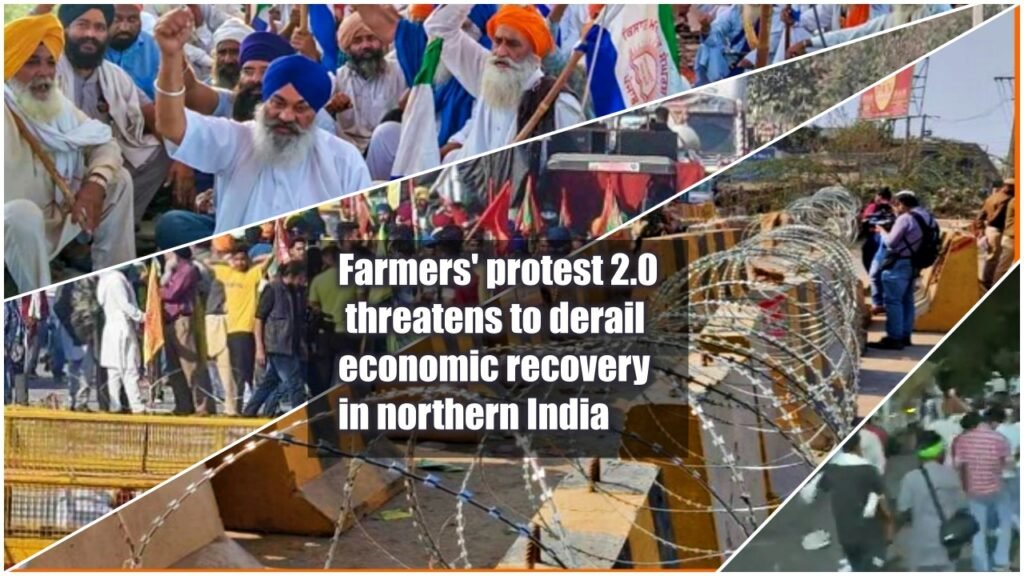
New Delhi: As thousands of farmers from Punjab, Haryana, and Western Uttar Pradesh march towards Delhi on February 13, demanding guaranteed prices for their crops, the industry body PHD Chamber of Commerce and Industry (PHDCCI) has raised alarm over the potential impact of the agitation on trade and industry in the northern states.
The PHDCCI said on Friday that the prolonged farmers’ protest could cause ‘serious damage’ to the economic recovery from the Covid-19 contraction and lead to a huge loss of employment in the region. It estimated that the protest would cause an economic loss of more than Rs 500 crore per day and affect the gross state domestic product (GSDP) of the northern states, mainly Punjab, Haryana, and Delhi, in the fourth quarter of 2022-23.
Sanjeev Aggarwal, president of PHDCCI, said, “The prolonged agitation will cause an economic loss of Rs 500 crore per day. “…and the fourth quarter GSDP of northern states will be impacted.” He said that the industry body expects an early resolution of the issues from both the government and farmers with a consensus for the welfare of everyone in the country.
Aggarwal said the farmers’ protest is seriously affecting businesses in Punjab, Haryana, Delhi, and parts of Uttar Pradesh and Rajasthan, especially the micro, small, and medium enterprises (MSMEs) which depend on the supply of raw materials from other states to execute their production processes and meet the demand of the consumers.
He said, “The biggest hit will be on MSMEs of Punjab, Haryana, and Delhi. The combined GSDP of these states at current prices is estimated to be Rs 27 lakh crore in 2022-23. There are around 34 lakh MSMEs in these states which employ around 70 lakh workers in their respective factories.”

He added that the disruption in supply chains and logistics due to the protest would also affect the prices and availability of essential commodities such as fruits and vegetables, dairy products, and poultry in the markets.
The PHDCCI urged the government and the farmers to engage in a constructive dialogue and find a mutually acceptable solution to end the impasse. It also appealed to the farmers to call off their protest and resume their normal activities in the interest of the nation’s economy and food security.






















































